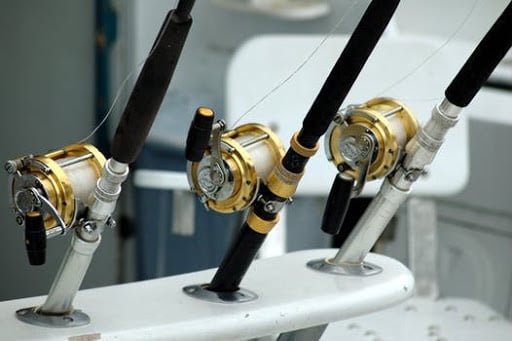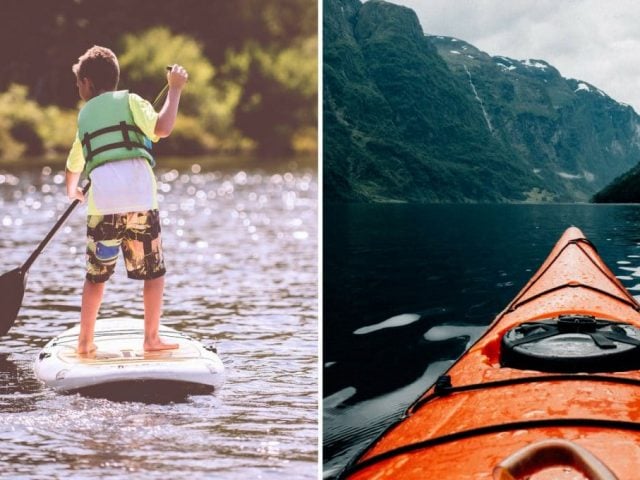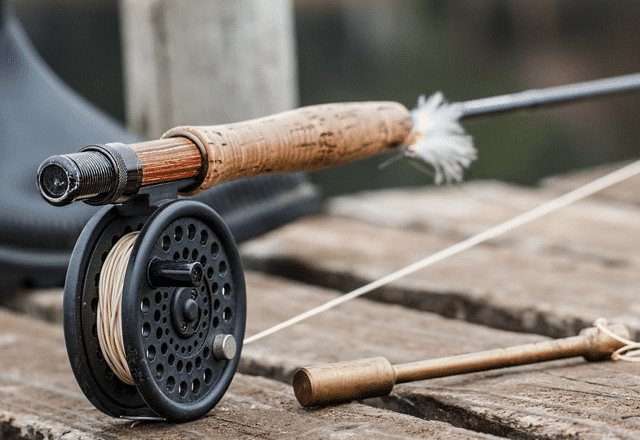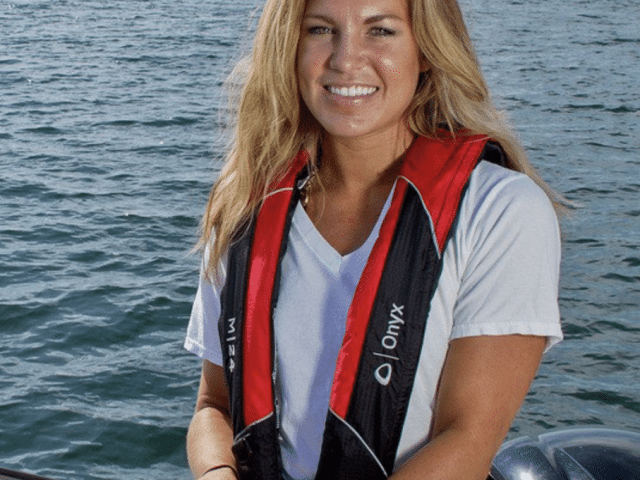Deep sea fishing is an amazing experience, but chances are most of us don’t get to go nearly as often as we’d like.
The last thing you want to do when you do get the opportunity to go is botch the trip by forgetting an essential piece of equipment.
Make sure you have a fun—and safe—deep sea fishing trip by being sure to take along these supplies.
Basic Fishing Gear
Let’s start with the essentials.
Obviously you need a fishing rod and reel. You’ll also need tackle, including line, hooks, and sinkers. What kind depends on what you’re planning on fishing for.
You may choose to bring bait or start your trip by catching bait, in which case you’ll need the gear to catch it. If you’re fishing with a charter boat service, they may provide bait or catch it for you, so ask and find out. Again, what kind you need depends on what you’re hoping to catch.

Don’t forget that you’ll also need a fishing license. Once again, chartered services may take care of this for you, so be sure to ask. If not, you can usually buy a fishing license online, at sporting and outdoor good stores, or at the harbor.
Buying online may require an extra processing fee, while the harbor may only take cash.
Layers for All Weather

Having the right attire can make or break your trip, but weather out at sea can be very different from the weather at your home or hotel, so it’s important to be prepared.
Shorts and a short sleeve shirt in light colors are a great base if it’s expected to be warm. If it’s predicted to be a bit chillier, switch the shorts out for pants and bring a hoodie or pullover for some extra insulation.
These clothes should be quick dry and should ideally provide UV protection.
No matter the forecast, bring a rain jacket or windbreaker and rain pants for protection from sea spray, wind, and rain.
Wear shoes with a soft rubber sole that provides plenty of traction on slippery decks as well as plenty of support since you’ll be on your feet a lot.
Bring a pair of gloves to protect your hands from line cuts, bites, sun, and wet or cold weather.
Polarized sunglasses are another essential. Not only do they help block the sun in the sky, but they also protect your eyes from potentially damaging glare on the water, and if they offer UV filtering they protect your eyes and the delicate skin around them from burns.
Finish off your outfit with a hat to protect your face and scalp from the sun. One with a wide brim will also shield your neck and ears.
Protect Yourself from the Sun
Speaking of sun protection, be sure to bring plenty of it.
Apply a broad spectrum sunscreen with an SPF of at least 30 before you get in the sun and bring it with you onto the boat. Reapply as the label suggests, with a minimum of every two hours.
A lip balm with SPF will protect your lips from not just the sun, but also the wind, which can quickly dry lips out.
Sun isn’t the only thing you need protection from, though.
Protect Yourself from Illness
Sea sickness medication is helpful, especially if you have a history of motion sickness or don’t know how you react to being at sea. Even if you haven’t suffered from sea sickness before, especially rough waters could have you feeling nauseated if you aren’t prepared.
Remember that these medications typically take a little bit to kick in, so take it ahead of time as recommended on the label, and be sure to take additional doses during the day.
You’ll also want to be sure to have hand sanitizer on hand to prevent other kinds of sickness from handling fish. Use hand sanitizer after handling fish or bait, after going to the bathroom, and before eating.
You might also want to bring a few band aids and disinfectant first-aid wipes. Your boat should have a well-stocked first aid kit, but it never hurts to be prepared.
Keep Full & Hydrated
And while we’re on the subject, make sure you have plenty of food and water to keep your body running its best in the harsh weather at sea.
Your body is working harder than normal just being in the sun and wind, not to mention actually fishing, so bring more food and water than you’d typically expect to consume during the period you’re at sea.
Foods dense in protein will help you feel full longer, while simple carbs will give you a quick boost of energy. Sandwiches are a great lunch option, but make sure you have snacks that you can snag throughout the day as well.
Make sure to have a lunchbox or small cooler with ice to keep your food cold until you’re ready to eat it.
Safety Gear


To keep this short, we’ve talked about life vests and throwable rescue gear before, so make sure you take a look at those articles.
Miscellaneous Gear
In addition to the above, there are a few other assorted goods you should bring with you on your deep sea fishing trip.
A couple of towels are essential. A larger towel will help you dry off, and a smaller towel or two is great for wiping slime and grime off of your hands after handling bait or a catch.
Whether it’s a digital camera, disposable camera, or smartphone, you’ll want a way to capture moments throughout the day, particularly catches. Just make sure you aren’t too busy snapping pictures to really take in the experience, and be sure to have a waterproof container to keep your camera or phone (and anything else you don’t want wet) safe when not in use.
Bring some cash, especially if you’re opting for a charter experience. Cash can be used to tip guides and other boat staff, and charter boats also frequently offer snacks and tackle for sale on board, but only accept cash. Some charter services also offer filleting services for a charge.
A larger cooler with ice packs provides you with a way to transport your catches home with you, but if you’re going on a chartered trip, the company may want you to leave it at shore during your trip.
Finally, you’ll want some kind of bag, whether a dry bag, gunny sack, or just a day pack, to keep all this stuff in.
For Overnight Trips
If you’re going to be spending the night on the boat, there are a few other things you’ll need to bring.
A light will help you navigate the boat in the dark. A flashlight will work, but a headlamp has the added convenience of keeping your hands free.

On the other hand, it’s not uncommon for at least one cabin light to be on all night, so an eye mask can help you get the sleep you need for a fun, but exhausting day of deep sea fishing. Ear plugs will help block out noise at the same time.
You don’t want to be on your phone too much, but if you’re using it as a camera and will be gone overnight, you probably will want a way to charge it anyway. You can bring a charger, but many boats don’t have an abundance of outlets, so I recommend an external battery instead. Just make sure it’s charged beforehand and that you bring whatever cords you need.
And, of course, you’ll want to bring a few basic toiletries. You won’t be able to take a hot shower, but baby wipes and deodorant will go a long way in helping you feel clean and not stink.
Final Thoughts
There’s a lot that goes into deep sea fishing, but with a little preparation and the right equipment, you’ll do just fine. Bring this stuff with you, and you at least won’t be turning back to shore because you forgot something.





